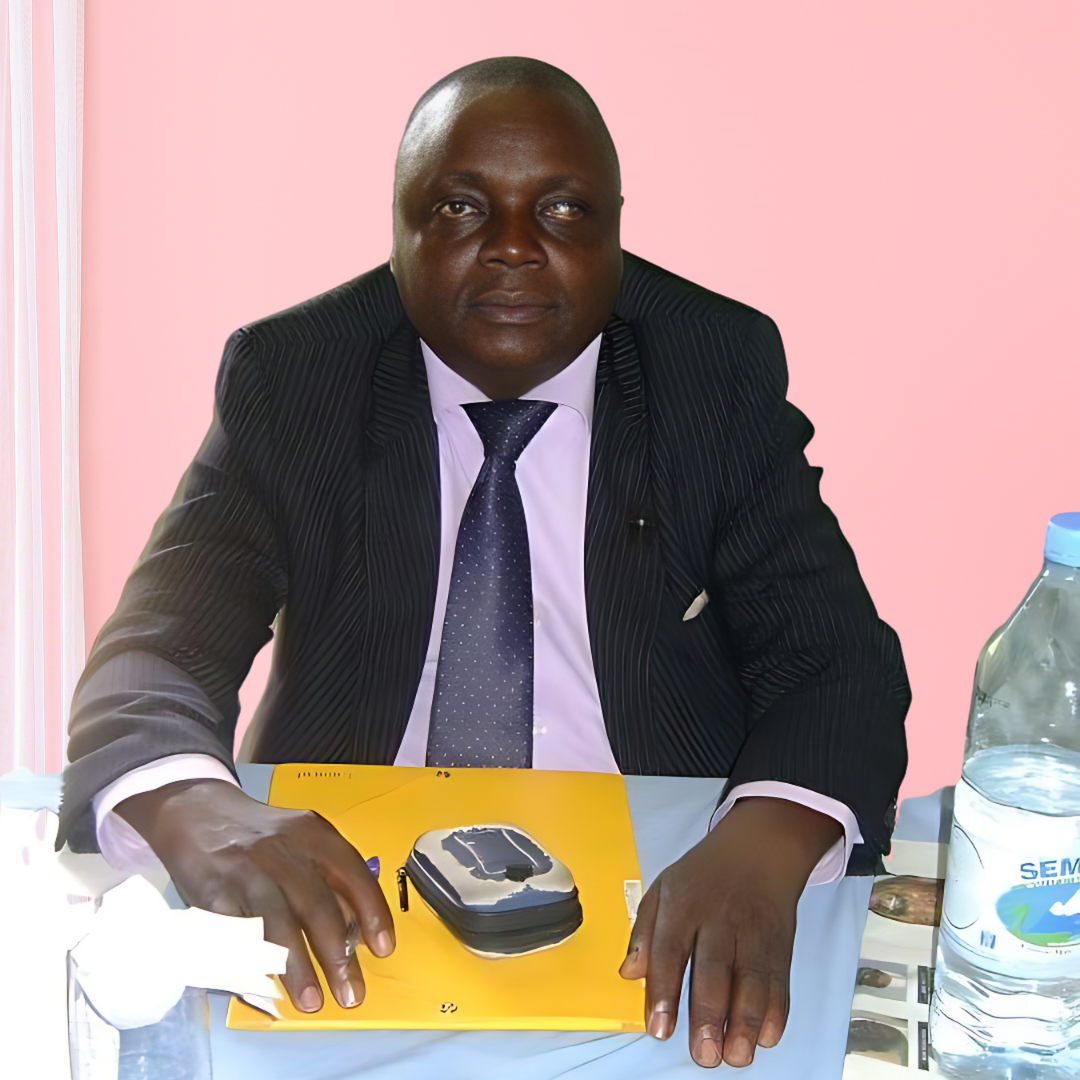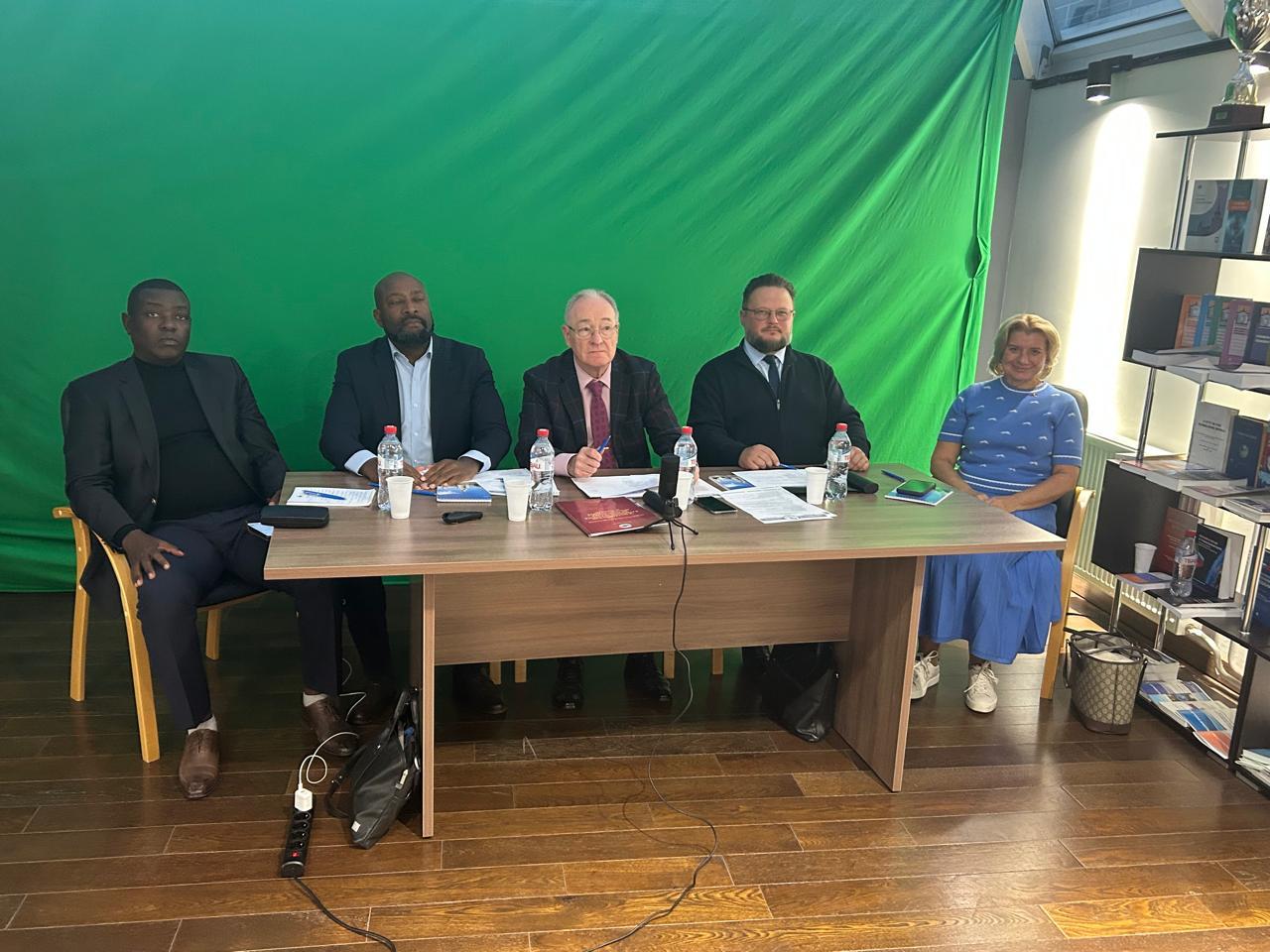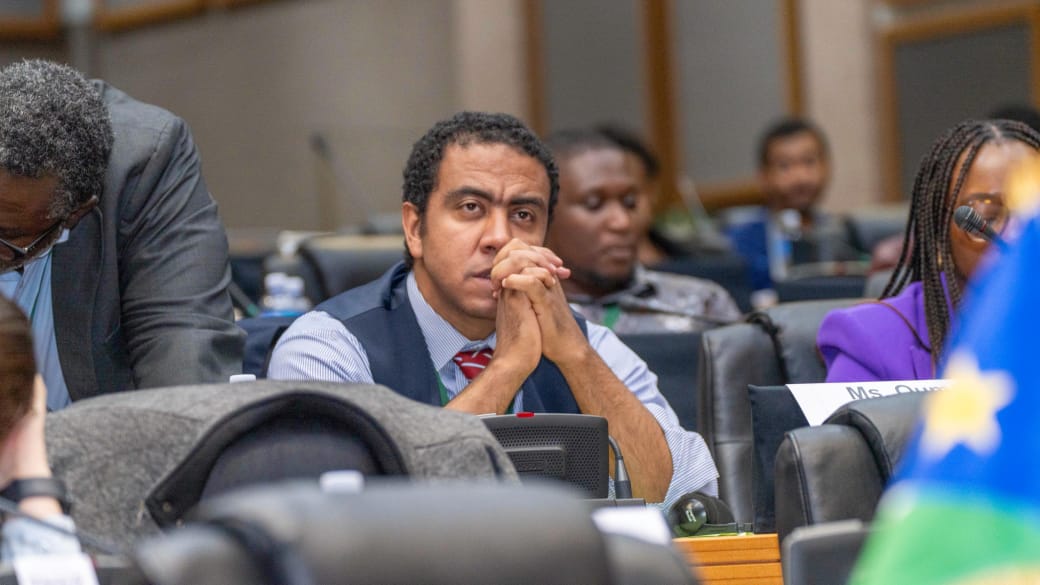Press Release
Telebridge “Russia – Republic of the Congo: New Prospects for Humanitarian Cooperation”
On September 30, 2025, the telebridge “Russia – Republic of the Congo: New Prospects for Humanitarian Cooperation” was held in the webinar studio of the Faculty of Global Studies at Lomonosov Moscow State University. The event was organized by the Russian-African Club of Lomonosov MSU. The co-organizers of the telebridge were the Faculty of Global Studies of Lomonosov MSU and the Public Diplomacy Foundation.
The telebridge was attended by representatives of state authorities, political figures, leading scientists, activists of public associations, and journalists from the Russian Federation and the Republic of the Congo.
The telebridge was opened by Alexander Fyodorovich Berdnikov, Executive Secretary of the Russian-African Club of Lomonosov MSU. He spoke about the events in which the Club has participated. In particular, the Russian-African Club of Lomonosov MSU is directly involved in promoting the opening of the Museum of African Cultures in Moscow, scheduled for 2026-2027.
A welcome address was delivered by Vladimir Viktorovich Kochetkov, Head of the Department of Social Global Processes and Youth Work at the Faculty of Global Studies of Lomonosov MSU, Doctor of Sociological Sciences. In V.V. Kochetkov’s opinion, the “Russia – Republic of the Congo” telebridge is an important initiative in bringing the two countries closer together. The speaker noted the increasing number of Congolese students in Russian universities and emphasized that the doors of Russian education are always open for students from African countries.
Louis Gouend, Director of the Commission for Diaspora and Media Relations of the Russian-African Club of Lomonosov MSU, also welcomed the telebridge participants, expressing hope that African graduates of Russian universities will become more actively involved in joint projects between Russia and Africa in various fields of cooperation.
Among the main areas of Russian-Congolese cooperation, participants paid special attention to interaction in education, science, and youth development.
A report was presented by Ivan Shalov, a representative of the Education and Science Department of Rossotrudnichestvo. He stated that the demand for Russian education in the Republic of the Congo is growing rapidly. Registration for applicants for study quotas has already started. The most popular fields of study are medicine and pharmaceuticals. In recent years, interest in engineering specialties has increased.
The Rossotrudnichestvo office, called the “Russian House” in Brazzaville, brought together public activists and journalists from the Republic of the Congo. Maria Albertovna Shakhurutdinova, Director of the “Russian House,” said that the work of the “Russian House” is greatly assisted by a Congolese team of specialists and enthusiasts united by their love and interest in Russia. The speaker noted that many graduates of Soviet and Russian universities now hold key positions in government bodies and large enterprises of the Republic of the Congo. A prime example is the current Minister of Foreign Affairs of the Republic of the Congo, Jean-Claude Gakosso, who graduated from the Faculty of Journalism of Leningrad State University in 1983, speaks Russian fluently, and to this day calls himself a Leningrader. Among the younger generation, the speaker cited the example of an advisor to the Minister of Sports and Youth Work, who recently received a Russian higher education. The Director of the “Russian House” in Brazzaville emphasized the high demand for teaching staff, specifically Congolese philologists who have received diplomas from Russia in teaching Russian as a foreign language.
Michel Ngebana Duke, Honorary Consul of the Russian Federation in Pointe-Noire, Republic of the Congo, and Deputy Chairman of the World Coordination Council of Russian Compatriots Living Abroad, proposed creating a database of graduates, expressing confidence that such data would be very useful for organizations and companies working in the field of Russian-African cooperation.
This was supported by Ondaï Otsouma Jean Pierre, a member of the Advisory Council of the Congo on Youth Affairs in the Russian Federation, a postgraduate student, and the Best Graduate of RUDN University in 2025. The speaker presented a report on the history of relations between Russia and the Republic of the Congo since the Soviet era. In the speaker’s opinion, cooperation between our countries opens up many opportunities for Congolese youth. Jean Pierre cited the most successful graduates of USSR and Russian universities as examples, some of whom have served in the government of the Republic of the Congo at different times and held various key positions in many industries and departments.
Inga Anatolyevna Koryagina, an expert on international development at UNDP, Associate Professor at the Department of Marketing of the Plekhanov Russian University of Economics, and Director for International Cooperation of the Russian-African Club of Lomonosov MSU, presented a report on Russian-African educational cooperation and long-term projects in this field, clearly demonstrating the growth dynamics and key formats of cooperation.
A report on food security issues was presented by researcher and teacher Georges Romain Zobo. In his presentation, the expert cited data showing that there are over 820 million undernourished people in the world, most of whom live in Sub-Saharan African countries. The expert analyzed the causes of acute food shortages both in the Republic of the Congo and in many other African countries and proposed a number of measures to overcome the food crisis.
Kraft de Dieu Warney Balossa, a student in the Department of Political Science at MSLU and an intern at the Institute for African Studies of the Russian Academy of Sciences, spoke about various aspects of Russian-Congolese cooperation, which, in his opinion, has been developing along an optimal path in recent years. The speaker cited cooperation in the military-technical sphere, water supply, and humanitarian领域 as examples. According to the speaker, a large number of major industry agreements have been signed over the past 5-6 years, for example, at the digital forum in Nizhny Novgorod in the summer of 2025.
The topic of educational cooperation was continued by Olivier Malango, Chairman of the Friendship Society between Russia and the Democratic Republic of the Congo. The speaker stated that the Friendship Society is making significant efforts to strengthen comprehensive ties between Russia and the Democratic Republic of the Congo. Olivier Malango also noted that the Democratic Republic of the Congo is the homeland of Patrice Lumumba, whose 100th anniversary was celebrated on July 2, 2025.
A.F. Berdnikov, Executive Secretary of the Russian-African Club of Lomonosov MSU, quoted Juliana Lumumba, words which, in his opinion, express the spirit of Russian-Congolese relations from the USSR to the present day: “The relations between our countries have always been built on the principles of mutual respect and mutual assistance. These relations have never been condescending; they have been relations of equal partners, and we would like to go even further in deepening them.”
Ilya Leonidovich Shershnyov, Director of Programs at the Russian-African Club of Lomonosov MSU, gave an example of cooperation with the Congolese public in broadcasting the Club’s film on Congolese television in Africa about the famous African political figure, fighter against the system of racial segregation (apartheid) in South Africa, Nelson Mandela. In 2024, through the cooperation of the Russian-African Club of Lomonosov MSU with the Russian African diaspora, a monument to Nelson Mandela was unveiled in Moscow.
Sydney Adoua Mbongo, Associate Professor at the Department of International Law at Marien Ngouabi University (Brazzaville), presented a historical analysis of Russian-Congolese relations. In his opinion, from 1992 to 2000, relations significantly weakened. But when Vladimir Putin became President of Russia, ties strengthened again. Since then, Russia has begun to actively and very successfully establish itself in various spheres, particularly in academic education, energy, and military-technical cooperation. The expert expressed confidence that in the context of building a new world order based on the principles of mutual respect and mutually beneficial cooperation between countries, relations between Russia and the Republic of the Congo are built on fair terms conducive to the comprehensive development of the African republic.
Nikita Olegovich Kaletkin, Director of the Museum of African Cultures, spoke about the tasks and concepts of the future museum in Moscow. The primary task of the museum will be the preservation and dissemination of African culture and art, presenting collections of art from African countries and folk crafts that convey the color and soul of the peoples of Africa. For this purpose, connections are being established with museums in various African countries, and expeditions and expert councils are being conducted. The expert named important concepts of the future museum, such as the “Timeline” and “Cultural Map” of the African continent. Nikita Olegovich noted as a good sign that on the day of the telebridge, an agreement was signed to transfer the building of the future museum to the contractor. According to the creators’ plan, the museum will feature an exhibition hall where collections of exhibits will be regularly updated to introduce the public more broadly to African art. Scientific conferences, lectures by famous art critics, travelers, ethnographers, and Africanist writers will also be held at the museum for a deeper understanding of the rich culture of the African continent.
Louis Gouend, Director of the Commission for Diaspora and Media Relations of the Russian-African Club of Lomonosov MSU, spoke about the upcoming Russia-Africa Business Forum, which will start on October 15 in Moscow at the Chamber of Commerce and Industry and last for 5 days. This is a major and significant event on the Russian-African agenda, where mutually beneficial business projects are born, specific connections are formed, and significant agreements are signed for the comprehensive development between business structures of Russia and Africa. The Business Forum includes an extensive program, which will also feature sports and cultural events. Louis Gouend expressed confidence that the forum will become a platform for establishing strong partnership ties between Russia and the African continent.
The meeting participants concluded that the telebridge is a convenient and modern format for open and productive dialogue, contributing to the development of comprehensive cooperation between Russia not only with the Republic of the Congo but also with other African countries.






